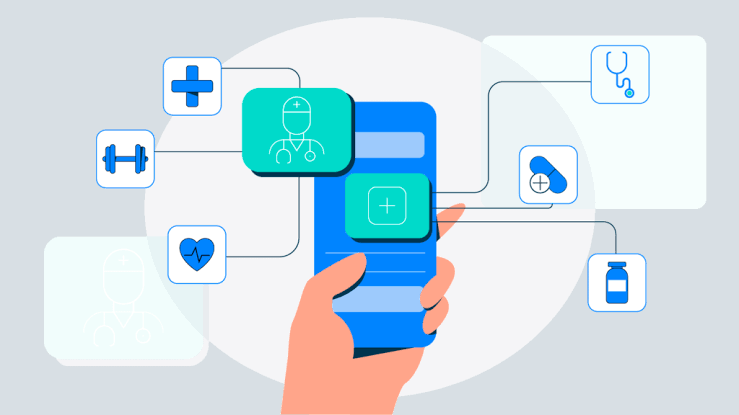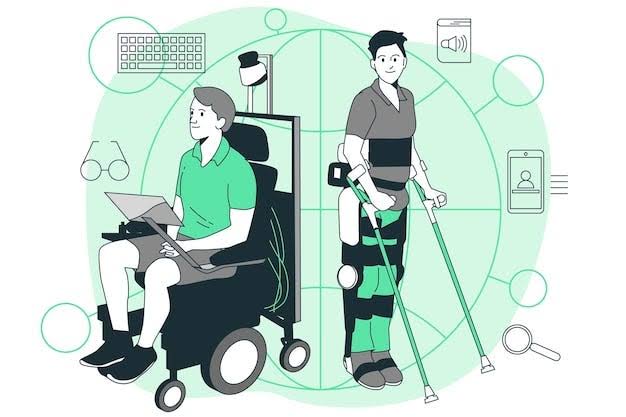In today’s fast-paced, digitally connected world, mobile health applications—also known as mHealth apps—have become a vital part of personal wellness and healthcare delivery. As of July 2025, the adoption of mobile health apps has surged globally, fueled by advancements in smartphone technology, increased awareness of preventive health, and the ongoing shift toward remote care.
Mobile health apps empower users to take control of their physical and mental well-being through real-time monitoring, education, communication with healthcare professionals, and access to a wide range of wellness tools. From chronic disease management to mental health support and fitness tracking, the benefits of using these applications are vast and ever-growing.
Empowering Personal Health Management
One of the most notable advantages of mobile health applications is the ability to give individuals greater control over their health. These apps allow users to:
- Track vital signs such as heart rate, blood pressure, and oxygen levels
- Monitor physical activity, sleep patterns, and calorie intake
- Set personal health goals and receive progress updates
- Receive reminders for medications, hydration, or appointments
This level of autonomy encourages users to stay informed and proactive about their health, ultimately leading to healthier lifestyle choices and improved long-term outcomes.
Enhancing Chronic Disease Management
For people living with chronic conditions such as diabetes, hypertension, or asthma, mobile health apps can be life-changing. They offer continuous monitoring and management tools that allow users to stay on top of their condition outside clinical settings.
Key benefits include:
- Real-time glucose monitoring and insulin tracking for diabetics
- Digital asthma inhaler trackers with usage logs
- Blood pressure monitoring with data exportable to healthcare providers
- Alerts for symptoms or medication dosage changes
By using these apps, patients can better understand their condition, reduce hospital visits, and adhere more closely to treatment plans—all of which lead to improved health outcomes and reduced healthcare costs.
Improving Access to Healthcare Services
In regions with limited access to healthcare professionals or facilities, mobile health apps bridge the gap. They provide virtual consultations, health advice, and diagnostic support, making healthcare more inclusive and accessible.
Features that support access include:
- 24/7 video or chat consultations with doctors or nurses
- AI-driven symptom checkers and health assessments
- E-prescriptions and online pharmacy integrations
- Remote diagnosis and monitoring tools
This is especially beneficial for individuals in rural areas, seniors with limited mobility, or people managing conditions that require frequent monitoring without the need for constant clinic visits.
Supporting Mental Health and Well-Being
As awareness of mental health continues to grow, so does the popularity of mobile apps aimed at emotional well-being. These applications offer tools that promote relaxation, mindfulness, and cognitive behavioral therapy (CBT), among others.
Common mental health features include:
- Guided meditation and deep breathing exercises
- Mood tracking and journaling functions
- Therapy chatbots and CBT modules
- Crisis hotline integration and professional counseling access
For users dealing with anxiety, depression, or stress, these apps provide a confidential and convenient way to manage symptoms and seek support without stigma.
Enabling Better Communication with Healthcare Providers
Mobile health apps often act as intermediaries between patients and their healthcare teams, streamlining communication and record-keeping.
Notable features include:
- Secure messaging and appointment scheduling with providers
- Access to electronic health records (EHRs) and lab results
- Shared tracking data that informs doctors of daily progress
- In-app telehealth features for regular check-ins
This seamless exchange of information enhances the patient-provider relationship, reduces administrative delays, and helps deliver more personalized care.
Encouraging Preventive Health and Early Detection
Prevention is a core focus of many modern health applications. By encouraging regular health monitoring and wellness activities, these apps help identify potential issues before they become serious.
Preventive features include:
- Routine screening reminders (e.g., mammograms, colonoscopies)
- Period tracking and reproductive health monitoring
- Lifestyle assessments and risk factor analysis
- Nutritional tips and fitness challenges to reduce obesity
Through education and gentle nudges, users are more likely to take action early—preventing diseases or managing them more effectively from the onset.
Promoting Health Education and Literacy
Education is at the heart of many mHealth applications, offering users a better understanding of their bodies and health conditions.
Educational tools often found in these apps include:
- Articles and videos on medical conditions, treatments, and wellness tips
- Glossaries of medical terms to improve understanding
- Interactive quizzes and health challenges
- Personalized content based on age, gender, or preexisting conditions
By increasing health literacy, users become more confident and informed participants in their healthcare journey.
Facilitating Data-Driven Healthcare Decisions
With real-time data collected from users, healthcare providers can make better, more informed decisions. Trends in user data help detect health issues early and support research and population health strategies.
Examples include:
- Aggregated user data for public health surveillance
- Insights into medication adherence patterns
- Real-world data for clinical studies and product development
- Personalized analytics that predict potential health risks
As artificial intelligence and big data analytics become more integrated into these platforms, the potential for data-driven care continues to expand.
Challenges and Considerations
Despite the many benefits, some challenges remain:
- Data privacy and security: Sensitive health information must be protected from breaches.
- Digital divide: Not all populations have equal access to smartphones or the internet.
- Accuracy and reliability: Some apps are not medically reviewed or regulated.
- Over-reliance: Users may substitute app advice for professional medical care when inappropriate.
Ongoing improvements in app design, regulatory oversight, and user education are crucial for mitigating these challenges and maximizing the benefits of mobile health apps.
Conclusion
The rise of mobile health applications has redefined how individuals interact with their health, making wellness management more personalized, accessible, and data-driven than ever before. From empowering chronic disease patients to supporting mental health and bridging healthcare access gaps, the benefits are wide-ranging and impactful.
As technology continues to evolve, mobile health apps are expected to play an even greater role in preventive care, diagnostics, and real-time health management—bringing us closer to a future where everyone can enjoy better health at their fingertips.




yi7t6c
The advantages and benefits of using medical health apps cannot be overemphasized